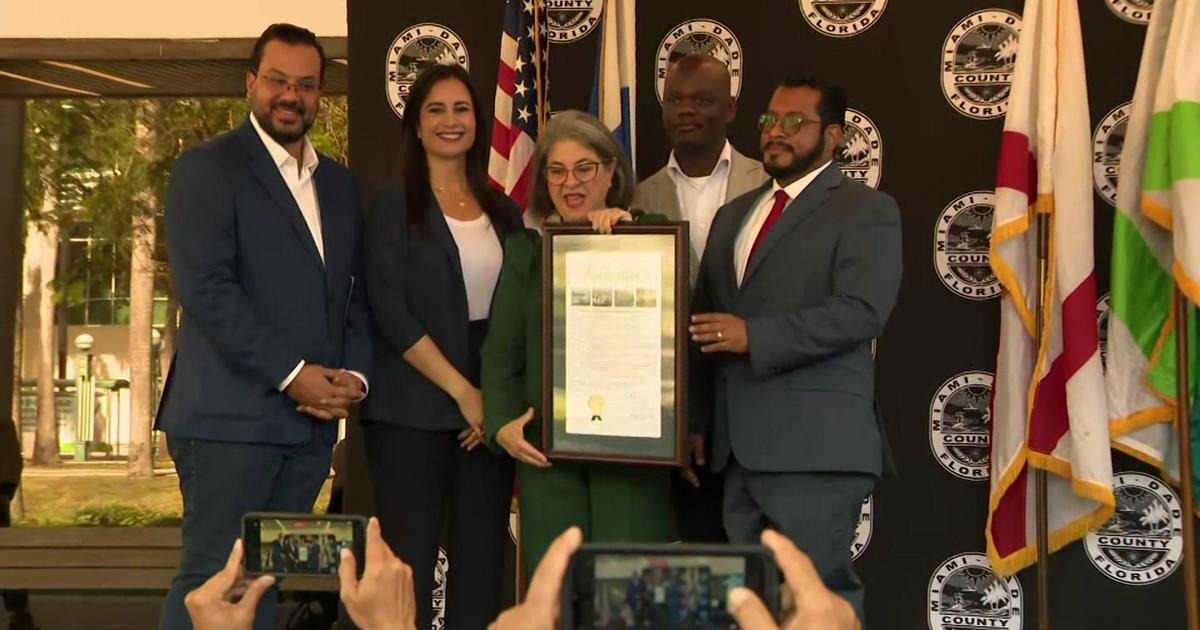Dramatic Rise In Suicide Rate Among Middle-Aged Women
MIAMI (CBSMiami) -- There has been a stunning increase in the suicide rate among middle aged Americans, 28-percent in a decade, according to a new government report released recently.
Among white men and women in that age group, the suicide rate jumped 40-percent between 1999 and 2010. And three times more women than men attempt suicide.
A courageous South Florida woman spoke out recently to help us understand why.
Michele was always pretty and well-liked on the outside, but on the inside, she was always sad. She didn't know why. Her first suicide attempt was at age 22. She overdosed on pills.
When she woke up from her coma, she felt great for about a month. Then she crashed. Anti-depressants helped for a while, but when those same feelings of despair overcame her, she tried to kill herself again at age 24.
"I really wanted to die," she said. "I really felt like I wanted to die."
Michele started taking drugs to fight her depression. The cocaine high didn't last and she became suicidal again. The third time, she slit her wrists.
"I just knew from my prior suicide attempts that the pills didn't work. So I wanted to do something that would work," explained Michelle.
John Giordano of G and G Holistic Counseling in Delray Beach said sometimes the anti-depressants aren't such a good thing.
"Certain anti-depressants raise serotonin levels and blunt dopamine and dopamine is the feel-good drug that we make naturally. When you blunt dopamine, the suicide rate goes through the ceiling," he said.
Researchers suggest that the spike in suicide could be attributed to the availability of prescription drugs and the recession. But there are other negative life experiences that may cause depression: Death of a loved one, divorce, drug or alcohol abuse and menopause.
"Their self-esteem hits bottom, they start to get depressed, they start to get anxiety, they start to feel lonely, empty, a lot of competition with the younger women," said Giordano.
Another factor: becoming an empty nester.
Soon after her third suicide attempt, Michele met her husband John and married. Things were great for 20 years. But at age 48 her children starting leaving the nest. Menopause set in and those old feelings came back.
"The feeling of that depression is just horrible. The despair you feel and the anxiousness you feel is just unbearable," said Michelle.
Michele overdosed on pills again. It was her fourth suicide attempt.
She finally got professional help and advises other women dealing with depression to do the same and know there is light at the end of the tunnel.
"Know it's going to pass. It's gonna pass. It's not going to feel like that forever," said said.
John advises loved ones to intervene. There are signs and symptoms of depression.
"Don't sit around and say, oh, they'll be ok, or I went through stuff like that. They don't believe it's going to happen to them and unfortunately when the wake up, oh, mommy's dead. And that's when people say, oh my god, I should of, would of, could of, and that's too late," he said.
Some signs of depression include:
- Loss of interest and pleasure in normal activities
- Irritability
- Agitation or restlessness
- Lower sex drive
- Decreased concentration
- Insomnia or excessive sleeping
- Eating too much or too little
- Chronic fatigue and lethargy
- Unexplainable crying spells
- Unexplainable physical symptoms such as headaches or body aches
- Feeling hopeless and worthless
- Withdrawal from social situations and normal activities
- Thoughts of death
- In extreme cases, hallucinations and delusions



